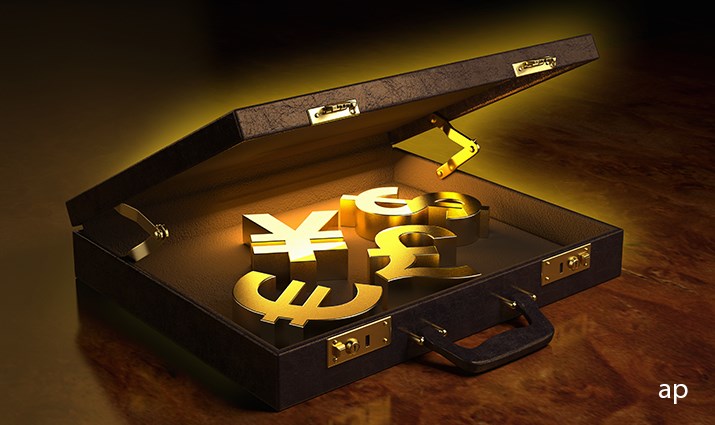
With interest rates set to remain ultra-low, inflation weak and post-Covid economic growth uneven, bond investors may be forgiven for expecting more of the same in 2021. But not all parts of the fixed-income landscape are on the same track: developed market government yields are low and prices expensive, while corporate debt has better yields but the risk of default remains real in a fragile economy. Professional bond managers are increasingly looking to emerging markets for better yields and because countries like China are on a faster recovery track than many developed nations.
In terms of asset classes, equities rallied strongly towards the end of the year, pushing the March/April crash, which provided a big boost for bond prices, further into the rear-view mirror (we looked at the case for bonds in October). Barring another period like spring 2020, investors won’t have cause to panic and seek safety (at all costs) in fixed income in 2021 (bonds are used to smooth out volatility and preserve capital and they performed that job well in the market crisis).
Governments have gone on monster borrowing sprees to shore up economies (a Democrat in the White House is likely to continue that trend) and this debt has to be financed by bonds – which central banks have been buying up, pushing the prices even higher. Central banks (and to a certain extent pension funds) have to buy government debt, but investors both professional and retail can say no.
Inflation, Debt and Recovery
There are a number of unknowns that could trouble this predictable outlook for 2021 and they’re all linked: inflation, high debt and the uneven path of recovery.
Inflation is the enemy of bond investors because a rise in the cost of living is usually followed by rising interest rates – making bond interest payments less attractive and turning investors off the asset class. In many countries, government bond yields are negative in absolute terms (the UK two- and five-year gilt for example), and negative in real terms, when inflation is taken into account.
“Government bonds in the developed world are offering little yield and little capital upside,” says Chelsea Financial Services managing director Darius McDermott, who prefers investment grade and high-yield bonds (company debt) in 2021 to capture the economic recovery.
Is inflation about to return with a vengeance in 2021? Experts are divided: some think the inflation spectre is overstated, others think it will rise, but not this year and not to high levels. Economic theory suggests the more money that is pumped in the economy, the more likely that inflation will rise. “We’ve never seen monetary growth of this size before”, says Steve Ellis, Fidelity’s global chief investment officer for fixed income, who expects inflation to rise in the coming years. Inflation is bad for bond investors but has an advantage for highly indebted governments in that inflation erodes debt over time.
Equity markets are assuming the coronavirus vaccine will allow economies to get back on track and that 2021 will be a year of recovery. But investors may be wise to expect the unexpected, according to fund managers. And with infection rates rising again, and countries like the UK imposing tough new measures in December, the idea of the world having “beaten” Covid-19 and getting back to normal seems a distant prospect.
Some managers are backing corporate bonds to do well in 2021, in price terms, while continuing to offer higher yields than government debt (companies are seen as riskier than countries, so investors expect higher interest payments in return). Companies are likely to come under less financial pressure than they did in 2020, which means fewer bankruptcies and debt defaults (when a firm is unable to meet its obligations to pay bondholders).
China, Green Bonds and Yield Curves
While talk of a “roaring twenties” for equity investors may be premature as the world continues to grapple with coronavirus, an improvement on 2020’s dire economic data seems a reasonable assumption. As the recovery of the developed world could be uneven, some fund managers are looking at emerging market debt for better returns (and yields) than those offered by the US, Europe and Japan. Philip Saunders, co-head of multi-asset growth at Ninety One, expects China to become an increasingly important part of the bond universe, and the country’s debt offers an alternative for investors to developed market bonds.
For investors keen to get sustainable exposure to fixed income, the expanding green bond market may offer another approach. In Europe, the green bond market is worth over €14 billion, according to Morningstar data.
While equity markets are supposed to be “forward looking”, they are often subject to wild swings in sentiment. New Year forecasts are fraught with danger, even more so after this year’s chaos. For bond investors, the yield curve – which shows changing bond yields over time – is a more reliable guide to where interest rates and economic growth will look like in the coming years.
“The market does a really good job of pricing in risk and uncertainty,” say Kipp Cummins, portfolio manager and vice president at Dimensional Fund Advisors. “The best predictor of what yields will look like tomorrow is by observing today’s yield curve.”





























